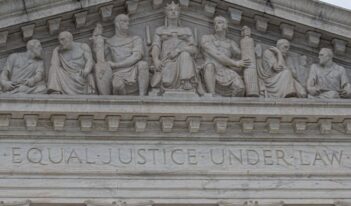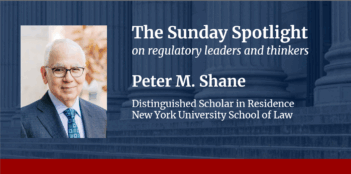The Challenges of Regulating Sports-Betting Advertisements
Scholar argues that restrictions on sports-betting advertising can align with commercial free speech protections.
Post-Pandemic Reforms to Unemployment Insurance
Experts discuss how policymakers can rebuild unemployment benefits for a changing economy.
Taking AI Ignorance Seriously
Scholar discusses the limits of AI as a tool for prediction and planning.
Congress Should Eliminate the FCC’s Public Interest Authority
The FCC’s authority to regulate needs to reflect the modern realities of broadcasting.
No Need for the Supreme Court to Revisit the Fairness Doctrine
The Court should not overturn a settled doctrine that ensures the fair use of airwaves.
Revisiting Broadcast Fairness
Scholars and practitioners debate the continued need for the FCC’s fairness doctrine for broadcast news.
Revisiting Congressional Oversight
Abolishing needed protections through the Congressional Review Act is not effective oversight.
Delegated Discretion is the New Deference
Scholar suggests that recent shifts in administrative law will matter less than critics fear and supporters hope.
The Supreme Court Should Overturn the Fairness Doctrine
The Court should no longer allow the government to require that broadcasters air opposing views on public issues.
In Defense of Regulatory Federalism
Developing state policies on AI and autonomous vehicles is crucial to effective federal regulation.
Extraterritorial Limits on States as Laboratories of AI Policy
The constitutional prohibition on extraterritorial regulation restricts democratic experimentation in the AI era.
The Uncertain Future of the Separation of Powers
Peter M. Shane discusses recent expansions of presidential power.












